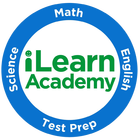|
From Application to Acceptance: The Journey of College Admissions, Part Two
[This is part two of a two-part series on college applications.] In the first part of this series, we discussed how you can help your student pick which colleges or universities to apply to. By now your student has considered carefully their scope of possibilities based on their grades, test scores, and field of study. They have decided between public and private universities, two- and four-year colleges, and liberal arts versus research schools. (Or they have decided to apply to a mixed group of these.) Finally, they have selected a range of about ten to twelve schools including safe options, target schools, and dream universities, and stand ready to move on to the next stage. Part Two: Actually Apply for College While the process of applying may resemble a Byzantine, even Kafkaesque, ordeal from time to time, one should resist the urge to feel overwhelmed by remembering that these school want – nay, need – students in order to exist. Your student can and will navigate these systems. If they struggle to complete a task related to a particular institution, do not hesitate to call the school’s admissions or bursar’s office for guidance, or seek out assistance from friends who may have completed this process recently. You can also contact us here at iLearn Academy for advice. You need not go through this process alone. Step 3: Gather all the required information. Armed with their list of target schools, your student should begin to gather the documents necessary. Individual schools’ application systems (as well as the Common Application) will give specific instructions, but here we highlight several common requirements.
Not all colleges will interview, and even those that do may only interview for special programs or scholarships. Find out early on if your student will need to interview for your selected colleges. If they find themselves scheduled for a meeting, have them consider these tips on how to successfully navigate these conversations.
https://www.princetonreview.com/college-advice/college-interview-tips https://bigfuture.collegeboard.org/get-in/interviews/college-interviews-practice-questions-and-strategies Step 5: Scholarships Scholarships not only help pay for tuition or living expenses, but they also reward students for effort and focus, providing motivation and a sense of accomplishment and belonging at college. Most schools offer many scholarship opportunities and the more your students applies for the more they can potentially earn. Research scholarship in two places:
0 Comments
Leave a Reply. |
Categories |
We make a personal commitment to ensure each student is well-prepared for the academic school year.
Dedicated to helping your student succeed.
©
iLearn Academy 2019


 RSS Feed
RSS Feed
